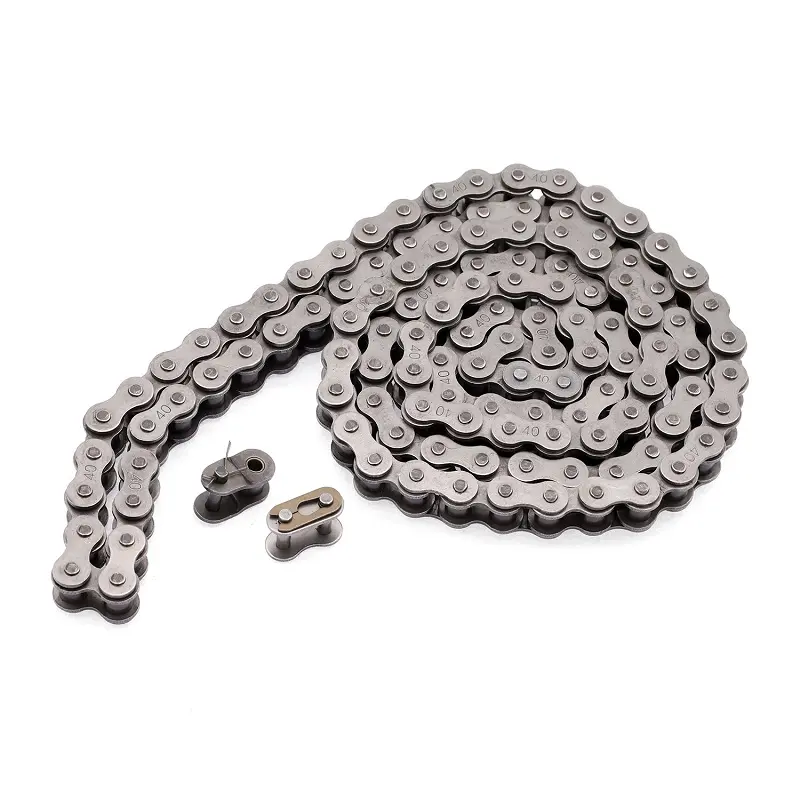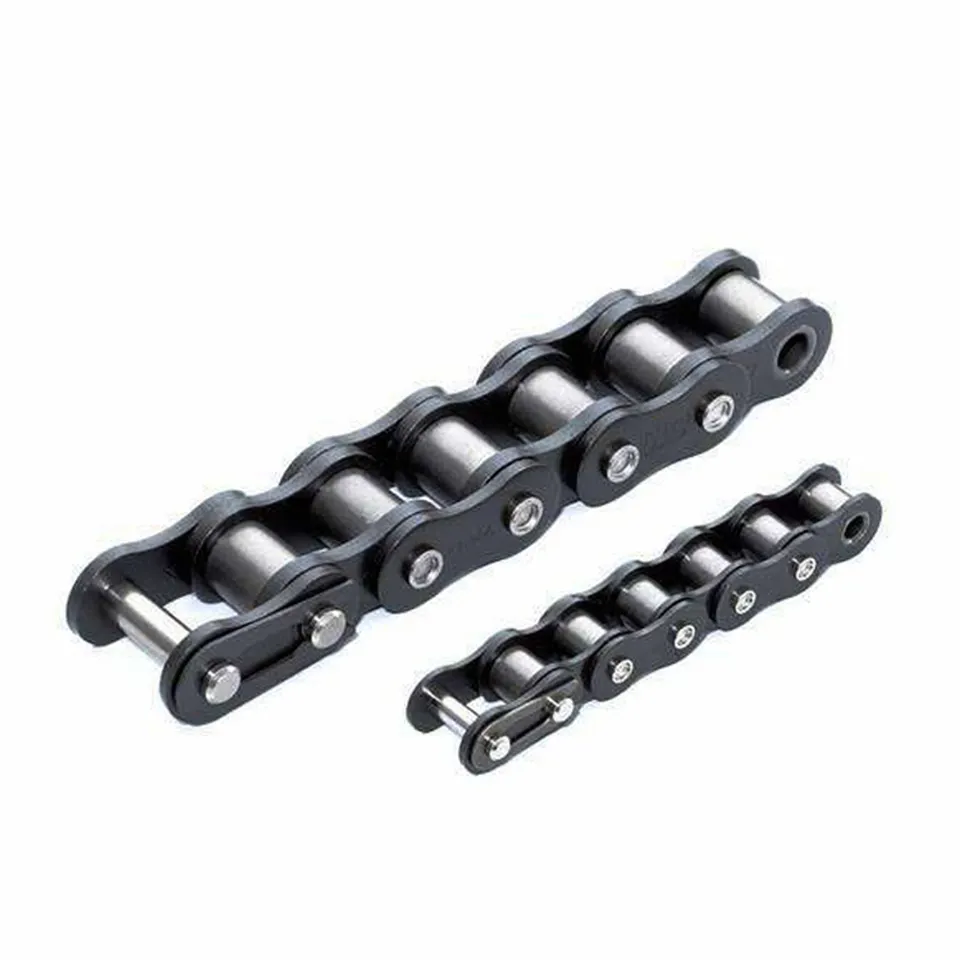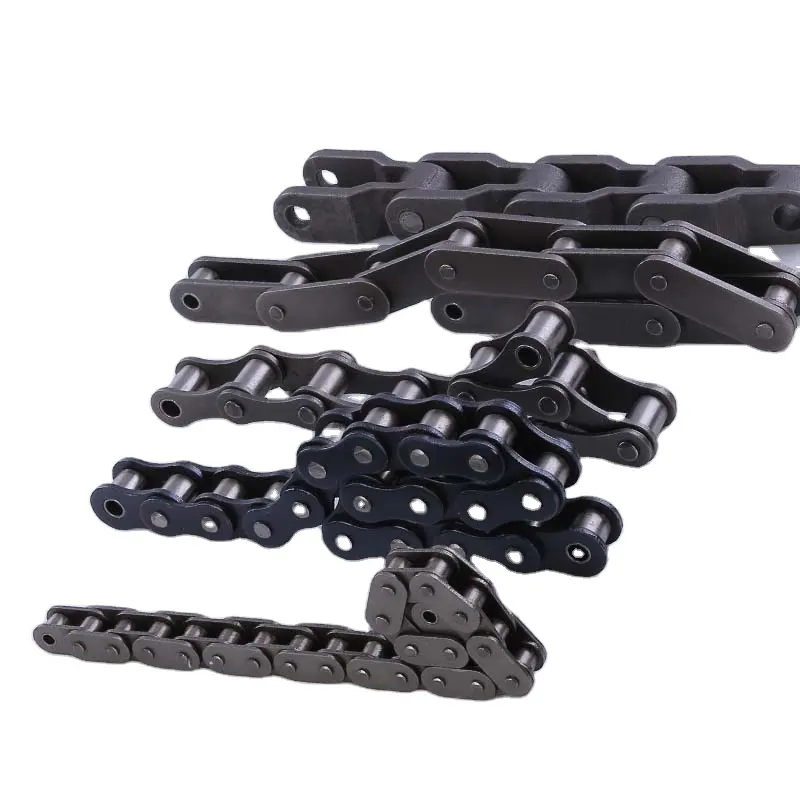Product Description
Wholesale Supply 6X18mm CHINAMFG Stainless Steel Link Chain Heavy Duty Black Industrial welded chain
| size dxp(mm) | width | Approx Weight(kg/m) | Working LoadLimit(t) |
Test Load(KN) | Breaking Load min. FN |
|
| inside min.w1 | outside max. w3 | |||||
| 3×9 | 3.8 | 10.7 | 0.21 | 0.28 | 7.1 | 11.3 |
| 4×12 | 5 | 14.3 | 0.35 | 0.5 | 12.6 | 20.1 |
| 5×15 | 6.3 | 17.9 | 0.54 | 0.8 | 19.6 | 31.4 |
| 6×18 | 7.5 | 21 | 0.79 | 1.1 | 12.7 | 45.2 |
| 6.3×19 | 7.9 | 22.6 | 0.86 | 1.25 | 31.2 | 49.9 |
| 7×21 | 9 | 24.5 | 1.07 | 1.5 | 37 | 61.6 |
| 8×24 | 10 | 28 | 1.38 | 2 | 48 | 80.4 |
| 9×27 | 11.3 | 32.2 | 1.76 | 2.5 | 63.6 | 102 |
| 10×30 | 12.5 | 35 | 2.2 | 3.2 | 76 | 125 |
| 11.2×33.6 | 14 | 40.1 | 2.71 | 4 | 98.5 | 158 |
| 11×43 | 12.6 | 36.5 | 2.33 | 3.8 | 92 | 154 |
| 12×36 | 15 | 42 | 3.1 | 4.6 | 109 | 181 |
| 12.5×38 | 15.5 | 42.2 | 3.3 | 4.9 | 117 | 196 |
| 13×39 | 16.3 | 46 | 3.8 | 5 | 128 | 214 |
| 14×42 | 18 | 49 | 4.13 | 6.3 | 150 | 250 |
| 14×50 | 17 | 48 | 4 | 6.3 | 150 | 250 |
| 15×46 | 20 | 52 | 5.17 | 7 | 168 | 280 |
| 16×48 | 20 | 56 | 5.63 | 8 | 192 | 320 |
| 16×49 | 24.5 | 59.5 | 5.71 | 8 | 192 | 320 |
| 16×64 | 23.9 | 58.9 | 5.11 | 8 | 192 | 320 |
| 18×54 | 23 | 63 | 6.85 | 10 | 246 | 410 |
| 18×54 | 21 | 60 | 6.6 | 10 | 246 | 410 |
| 19×57 | 23.7 | 63.2 | 7.7 | 11.3 | 270 | 450 |
| 20×60 | 25 | 70 | 8.6 | 12.5 | 300 | 500 |
| 22×65 | 28 | 74.2 | 10.7 | 15.3 | 366 | 610 |
| 22×66 | 28 | 77 | 10.2 | 15.3 | 366 | 610 |
| 22×86 | 26 | 74 | 9.5 | 15.3 | 366 | 610 |
| 24×72 | 32 | 82 | 12.78 | 18 | 432 | 720 |
| 24×86 | 28 | 79 | 11.6 | 18 | 432 | 720 |
| 26×78 | 35 | 91 | 14.87 | 21.3 | 510 | 720 |
| 26×92 | 30 | 86 | 13.7 | 21.3 | 510 | 850 |
Payment
| Payment term | L/C | l/c amount above 40.000 usd,we can accept L/C at sight | |
| T/T |
EXW | 30% T/T in advance,paid the balance before shipment |
|
| FOB | |||
| CIF | 30% T/T in advance,paid the balance against copy of B/L |
||
| cfr(c&f) | |||
| paypal | amount lower than 4000usd |
||
| west | |||
| Delivery time | 15~35days after receiving payment for 1 container |
| We welcome use trade assurance,you`ll enjoy: 100% product quality protection 100% on-time shipment protection 100% payment protection for your covered amount |
Wecome to CHINAMFG company, detail below:
Contact : Miss Angela dong
Website: hzdele
| Usage: | Transmission Chain, Conveyor Chain, Load Chain |
|---|---|
| Material: | Stainless steel |
| Surface Treatment: | Electroplating |
| Feature: | Heat Resistant |
| Chain Size: | 6*18mm |
| Structure: | Welded Chain |
| Samples: |
US$ 5/Meter
1 Meter(Min.Order) | |
|---|
| Customization: |
Available
| Customized Request |
|---|

Can an industrial chain be used for heavy-duty applications?
Yes, an industrial chain is commonly used in heavy-duty applications due to its ability to handle high loads and provide reliable power transmission. Here are some detailed reasons why industrial chains are suitable for heavy-duty applications:
- High Load Capacity: Industrial chains are designed to withstand heavy loads and transmit power efficiently. They are constructed with robust materials and components to ensure they can handle the demanding conditions of heavy-duty applications.
- Strength and Durability: Industrial chains are manufactured from high-strength materials such as alloy steel, which provides exceptional tensile strength and resistance to wear and fatigue. This allows them to withstand the stresses and strains associated with heavy loads and continuous operation.
- Reliable Power Transmission: Industrial chains offer a reliable and efficient means of transmitting power in heavy-duty applications. They provide a positive engagement between the sprockets, ensuring smooth and consistent power transfer even under high loads.
- Versatility: Industrial chains can be designed and configured to meet the specific requirements of different heavy-duty applications. They are available in various sizes, designs, and types, allowing for customization and adaptation to specific load conditions and operating environments.
- Proven Track Record: Industrial chains have been widely used in heavy-duty applications across industries such as construction, mining, agriculture, and material handling. Their reliability and performance in demanding conditions have been well-documented, making them a trusted choice for heavy-duty applications.
Overall, the robust construction, high load capacity, strength, durability, and proven performance make industrial chains a suitable choice for heavy-duty applications where reliable power transmission and handling of high loads are essential.

What is the load capacity of an industrial chain?
An industrial chain’s load capacity refers to the maximum amount of weight or force it can safely withstand without experiencing failure or damage. The load capacity of an industrial chain depends on several factors, including its design, construction, material, and size.
Industrial chains are engineered and manufactured to handle a wide range of load capacities, from light-duty applications to heavy-duty industrial operations. The load capacity of a specific industrial chain is typically provided by the manufacturer and can be found in product specifications or technical documentation.
The load capacity of an industrial chain is influenced by various factors, such as:
- Chain Type and Size: Different chain types, such as roller chains, silent chains, or engineering steel chains, have varying load capacities. Additionally, the size or pitch of the chain also affects its load capacity, with larger chains generally having higher load capacities.
- Chain Material and Construction: The material used to construct the chain, such as stainless steel, carbon steel, or alloy steel, affects its strength and load-bearing capacity. The chain’s construction, including the number and arrangement of links, also plays a role in determining its load capacity.
- Operating Conditions: The environment in which the industrial chain operates, such as temperature, humidity, and exposure to chemicals or corrosive substances, can impact its load capacity. Extreme conditions may require special chains with higher load ratings.
- Application Requirements: The specific application and the forces involved, such as tension, shock loads, or dynamic forces, need to be considered when determining the appropriate load capacity of an industrial chain.
To ensure the safe and efficient operation of an industrial chain, it is crucial to select a chain with an appropriate load capacity for the intended application. Exceeding the recommended load capacity can lead to premature wear, chain failure, or safety hazards. Consulting the manufacturer’s specifications and guidelines, as well as engineering calculations, can help determine the suitable load capacity for a given industrial chain.

How is an industrial chain different from a regular chain?
An industrial chain differs from a regular chain in terms of its design, construction, and intended application. Here are some key differences:
- Strength and Durability: Industrial chains are specifically designed to handle heavy loads and withstand harsh operating conditions in industrial settings. They are constructed using high-quality materials and undergo rigorous testing to ensure strength and durability.
- Precision Engineering: Industrial chains are engineered with precision to meet specific performance requirements. They are manufactured to strict tolerances, ensuring precise fit and proper engagement with sprockets, resulting in reliable and efficient power transmission.
- Specialized Designs: Industrial chains come in a variety of specialized designs to accommodate different applications. They may feature specific link shapes, roller configurations, or surface treatments tailored to meet the unique needs of various industries, such as conveying, lifting, or power transmission.
- Lubrication Requirements: Industrial chains often require regular lubrication to minimize friction and wear. They may incorporate lubrication systems or be designed to accommodate external lubrication methods to ensure optimal performance and longevity.
- Application Focus: Regular chains are commonly used for lighter-duty applications such as securing objects or supporting light loads. Industrial chains, on the other hand, are designed for heavy-duty industrial applications, including machinery, conveyors, mining equipment, and other demanding environments where high load capacity and reliability are crucial.
- Industry Standards and Regulations: Industrial chains are often subject to specific industry standards and regulations to ensure their performance, safety, and compatibility with machinery and equipment used in industrial settings.
Overall, the key distinction lies in the industrial chain’s robustness, precision engineering, specialized designs, and suitability for heavy-duty industrial applications, setting it apart from regular chains commonly used in lighter-duty tasks.


editor by CX 2023-12-11